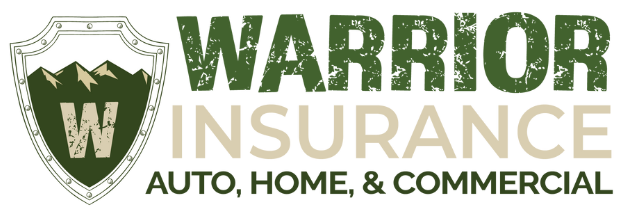Buying a home is one of the biggest steps many people will take, and most want to protect that investment. Homeowner’s insurance offers valuable coverage, especially when something unexpected damages your property. But even with a comprehensive plan, there are some things your policy won’t handle. That’s why understanding the limits of your insurance matters just as much as having the coverage itself.
Many homeowners believe their policy covers everything, but when a claim gets denied, they realize there were gaps they didn’t see coming. Whether you’ve owned your home for years or just moved into your first place, knowing what’s excluded in a policy can help you avoid shock later and make smarter decisions about extra protection. Let’s look into the parts of homeowner’s insurance that often don’t offer the coverage you think they do.
Common Exclusions In Homeowner’s Insurance
Homeowner’s insurance policies usually include protection for your structure, some personal property, and liability. But not every situation is covered. Some of the most common exclusions fall into categories many homeowners in Colorado Springs might actually face.
Here are examples of events or damages that most standard policies don’t cover:
– Flood damage: If your home gets flooded due to heavy rain or rising water, your homeowner’s policy likely won’t cover the damage. This includes water creeping in through the ground or backed-up storm drains. Separate flood insurance is needed for this.
– Earthquake damage: While rare in some places, an earthquake can crack your foundation or destroy parts of your house. This isn’t typically part of a regular policy either.
– Mold or rot: If your home has minor water leaks that eventually lead to mold or rotted wood, your policy may not cover cleanup or repairs. Insurance companies see this as an issue of neglect, not a sudden event.
– Sewer backups: If wastewater backs up into your basement, don’t count on a standard policy to help. This usually requires an add-on.
– Pest damage: Termites, mice, and other pests can cause a lot of harm, but the damage they leave behind usually isn’t insured.
What these all have in common is that they don’t result from sudden, random events. Insurance companies often exclude anything they see as preventable, slow progressing, or related to maintenance.
Some of these situations, like flooding or sewer backup, can happen after summer storms or winter snowmelt. Colorado Springs sees both ends of the weather spectrum, making it important for homeowners here to look into special policies or additional riders, just in case. Taking the time to look over your current plan with someone knowledgeable can reveal gaps and help you make better decisions about what types of optional coverage you might want to add.
Personal Property Limitations
While your homeowner’s policy typically covers personal belongings, it might not extend full protection to high-value items. Jewelry, art pieces, and pricey electronics might only receive limited coverage. For instance, if you own a very expensive piece of jewelry, a standard policy may cap the loss amount, leaving you to cover the difference.
To fully protect valuable possessions, consider adding specific endorsements or riders. These extras target high-value goods and ensure more comprehensive coverage. Getting these add-ons could prevent significant losses if misfortune strikes. It’s also wise to keep a home inventory, documenting items and their values, to streamline any future claims process.
Wear and Tear
Every house experiences gradual wear and tear. Roofs age, pipes rust, and paint fades. However, insurance companies see these as part of homeownership responsibilities. They don’t typically cover damage from regular use or neglect.
Insurance aims to cover unpredictable events, like a burst pipe in a good plumbing system. But if years of ignoring small leaks lead to a larger issue, don’t expect a payout. Staying on top of routine maintenance can prevent costly surprises and keep your home insurance in good standing.
Business Activities Conducted From Home
Running a business out of your house can open up new opportunities, but it might also create gaps in your homeowner’s coverage. If an accident occurs related to your business, your policy might not recognize it. For example, if a client visits your home office and injures themselves, your homeowner’s policy may not cover the incident.
Consider separate business coverage for both property and liability risks. This ensures that any business-related incidents or damages get the proper attention. Tailoring your insurance to include these policies means protecting your professional interests.
Natural Disasters and Events
Natural events can unexpectedly hit homes, shifting from calm skies to storms or quakes. Most homeowner policies don’t cover certain natural disasters. Earthquake damage is rarely included, and while fire damage might be covered, damage from lightning might need closer examination.
Supplemental policies can fill coverage gaps left by such natural events. Understanding which extra policies you might need helps you secure the right protection before any event strikes.
Finding the Right Coverage for Your Needs
Choosing a coverage plan that lines up with your situation can seem challenging, but having the right protection makes all the difference. Start by evaluating your property, assets, and any specific risks. Match your coverage to these factors to create the best strategy.
Checking in with an experienced provider can help you figure out weak spots in your existing plans. Expert advice helps you sort through options and find a coverage setup that fits your lifestyle and Colorado Springs weather patterns. This means you’ll be better prepared when the unexpected hits and avoid financial surprises down the line.
FAQs About Homeowner’s Insurance Exclusions
What are some common exclusions in standard homeowner’s insurance policies?
Standard policies typically exclude damage from floods, earthquakes, mold or rot, sewer backups, and pest infestations.
Does homeowner’s insurance cover all my personal belongings?
While personal belongings are generally covered, high-value items like jewelry or art often have limited coverage and may require additional endorsements.
Is damage from regular wear and tear covered by homeowner’s insurance?
No, insurance companies usually do not cover damage resulting from gradual wear and tear, neglect, or lack of maintenance.
Am I covered if I run a business out of my home?
Your standard homeowner’s policy generally won’t cover business-related incidents or damages, so separate business coverage is often needed.
Do homeowner’s policies always cover natural disasters?
Many natural disasters, such as earthquakes, are not covered by standard policies, and supplemental policies may be necessary to fill these gaps.
Why Knowing What’s Not Covered Matters
Not knowing what your policy excludes can cost you when you least expect it. Taking steps now to review your current plan helps you protect every part of your home and personal life. Whether that means adding extra policies or boosting your limits, small changes now can lead to big peace of mind later.
Get clear about what your homeowner’s insurance really includes and where it falls short. Understanding these pieces puts you in control and helps you build coverage that works when real life happens.
Make sure your coverage fits your life, especially with unpredictable weather and home risks in Colorado Springs. If you’re unsure about what’s included or want to shore up those policy gaps, let Warrior Insurance help. Take the next step toward protecting your investment by exploring your options for home owner’s insurance today.

